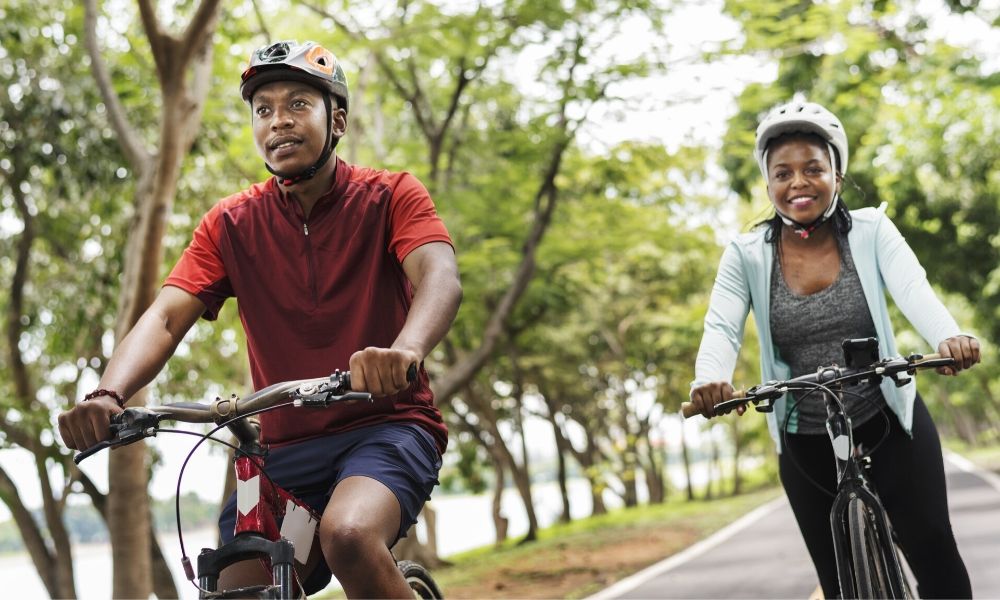Cycling is a serious activity that requires persistence, practice, and dedication. Like any sport or physical activity, there are ways to become a better cyclist any dedicated rider should know. When it comes to improving your cycling skills, check out these tips on climbs, handling, nutrition, rest, and competition for more information. See how to change your game below.
Get Used to Inclines
One of the best ways to become a better cyclist is to take on every hill on your trail. Don’t avoid them; seek them out for better practice. Climbing hills is a great way to increase your strength and endurance. This also gives you practice changing gears, which can be awkward for some riders. When riding up a climb, choose a gear bigger than normal, around 50 to 60 rpm, for five to twenty minutes. This gives you plenty of practice on long and short climbs. Learn how hard to push yourself and your bike with each subsequent climb.
Improve Your Handling
Related to that, you’ll want to improve your bike handling. Wet, uneven, or natural terrain can affect ride performance. It takes skill and knowledge to ride across these surfaces, just as it does for paved roads or asphalt. Therefore, consider learning different riding styles for better handling in awkward situations. Cyclocross can help when riding across wet or natural terrain, as you’ll practice over sand, mud, rain, and other surfaces.
Eat and Recover
Like any sporting competition, proper diet and recovery are essential for long-term success. High-carb and protein diets rich in cereals, pasta, eggs, beans, toast, fruit, peanut butter and jelly sandwiches, and other high-calorie foods help tremendously. Cyclists enhance their bodies with the right nutrition to perform in long-distance races. These foods, like the ones listed, are rich in vitamins, minerals, and nutrients that fuel the body with the energy it needs. Also, many cyclists consume energy gels that act as insulin boosters for a fast energy spike. These gels consist of simple sugars for staving hunger and keeping the body energized. It’s equally important that you listen to your body when it needs a break. Rest days are just as important as training days and help you recover for the next race or practice session. You can also use these days as active-rest days in which you stretch, get a massage, or go for a light and relaxing ride rather than a strenuous long-distance ride.
Train to Compete
Some riders may take their racing skills to the next level by entering competitions. There are many cycling races to choose from, ranging from those for amateur riders to extreme cycling events. Test your skills by competing against other riders. Whether for a prize or for personal accomplishment, races are motivators for those who continually practice and train but feel burnt out with no set goals ahead. Remember to choose one based on your skill level for a fair chance against the competition.

